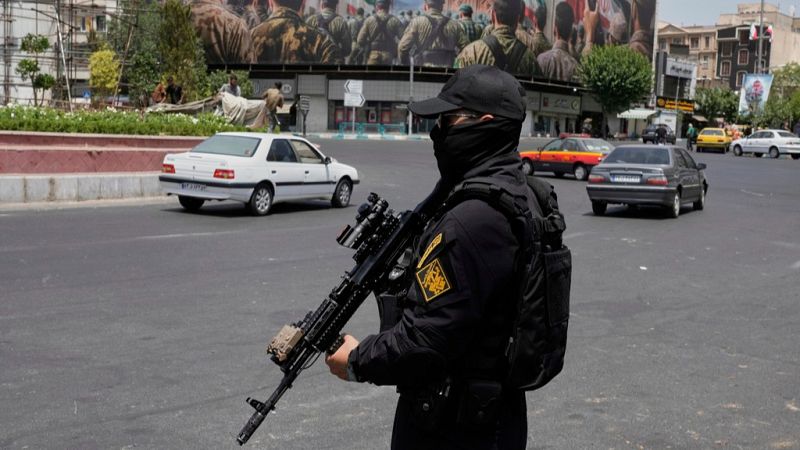Iran says it detained 21,000 'suspects' during the 12-day conflict with Israel

Iranian police detained 21,000 people on suspicion of offences such as spying and illegal filming during the nation's 12-day conflict with Israel, state media reported on Tuesday.
After Israel launched air strikes against its regional rival on 13 June, Iran's authorities ramped up an internal security crackdown — ranging from mass arrests to executions.
More than 1,000 police checkpoints were set up nationwide during the conflict with Israel, according to Iranian police spokesman Saeed Montazeralmahdi. He told state TV that the crackdown relied on citizens reporting suspicious activity to the authorities.
"The arrest of 21,000 suspects during the 12-day conflict indicated high awareness and participation of people in providing security," Montazeralmahdi was quoted as saying.
"Law enforcement rounded up 2,774 illegal migrants and discovered 30 special security cases by examining their phones," he said.
The conflict saw a huge increase in Afghan migrants being deported from Iran back to Afghanistan, according to the UN refugee agency. The sharpest rise occurred on 26 June — two days after the conflict — when some 36,100 Afghans returned in a day.
Montazeralmahdi said that 261 suspects of espionage and 172 people accused of unauthorised filming were also arrested in the security forces' crackdown.
However, the spokesman did not elaborate on what charges the suspects might face.
This is the first time Iran’s police have given a total number of arrests during the 12-day fighting. In recent weeks Iran has occasionally reported the arrests of suspects on spying charges.
The 21,000 figure contrasts with remarks made by Iran’s judiciary chief Gholamhossein Mohseni Ejei last month.
He told Iranian state TV that around 2,000 people were arrested during and after the 12-day conflict, and said many of those were released after investigations found no evidence of spying for or cooperation with Israel.
Since the end of June, Iran has reportedly executed seven men convicted of spying for Israel, sparking fears from activists that Tehran could conduct a wave of executions.
The number of executions in Iran rose to at least 901 last year, the highest annual figure since 2015, according to the UN High Commissioner for Human Rights.
Amnesty International has accused Iran of having "intensified repression at home" following the hostilities with Israel in June.
Today

